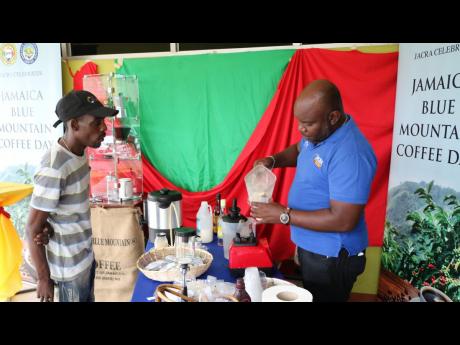JACRA goes digital
As of today, it will be mandatory for all individuals or companies importing any of the commodities regulated by the Jamaica Agricultural Commodities Regulatory Authority (JACRA) to make their applications via the digital platform, Jamaica Single Window for Trade (JSWIFT).
Since November 4, 2021, some companies have been using the online system to access the JACRA Import Permit Release service to process applications and pay all relevant fees. It also has facilities all the necessary checks and balances by the agency. Among the current users are PriceSmart Jamaica Limited; Docian Hotel Supplies Company Limited; Super Value Home Centre Limited; GSGP Marketing and Production Company Limited; the WISYNCO Group; Cari-Med Group Limited; Bare Nutrition Company Limited; Timo’s Trading Limited, Caribbean Producers Jamaica Limited, and Branch Developments Limited.
On Friday, Director General of JACRA Peter Thompson explained that the benefits will include reduced processing time, reduced logistics costs, and the removal of the risk of contamination, especially in light of the COVID-19 pandemic, since walk-in services will be discontinued.
“What we intend on doing is to digitise the operations to make the system much more efficient and friendly towards persons who are doing imports of the regulated commodities,” he told The Gleaner. “So, you can stay at your house or office and go online and complete the application, which is then routed to JACRA in real-time for verification. It is then checked and verified, and if there is need for any correction or clarification, it will be rerouted back to the source and the necessary adjustment made.”
There is also a cess calculator that has the relevant charges for all of the commodities regulated by the JACRA, which makes it much easier for business operators to get the correct calculations done online and the correct payments made. The training was provided by the JSWIFT team for all JACRA processing officers, customs brokers/clerks, participating members of the Jamaica Manufacturers and Exporters Association and other importers, in order to meet the deadline for the mandatory use of the digital platform.
In addition to a much shorter turn-around time for Customs clearance, ease of accessing permit release and online payments, the new system also makes manual applications obsolete.
SLASHED FEES
Thompson used the opportunity to remind farmers and other business persons that in response to public outcry, the JACRA has slashed most of its service fees and cess by as much as 50 per cent since April 1, 2020.
Meanwhile, in his message to observe Jamaica Blue Mountain Coffee day, which is commemorated on January 9 each year, but which the JACRA observed on Friday with coffee display in a café setting, the director general said that for 2022, the agency will be pursuing a number of other strategies to strengthen its capacity to deliver a higher level of service to its many clients. These include capacity building of staff and farmers, new varietal trials, enhanced technical support to farmers in order to improve production and productivity, both in the field and in nurseries.
Brand protection will also be high on the agency’s agenda, as well as addressing quality concerns at farms and depots, with greater stakeholders engagement, and discussion on a price point that allows farmers to earn a sustainable income from coffee.
These initiatives, according to Thompson, must be viewed in light of the potential of climate change to spawn more extreme weather conditions, such as hurricanes and lengthy droughts which, along with pests and diseases, can add significantly to the input costs.
“As we reflect on these challenges, we are investigating innovative ways to address them by employing new and appropriate technologies, while working with both local and international partners. Plans are being made to increase the production level of coffee by approximately 40 per cent in the medium term,” he declared.


